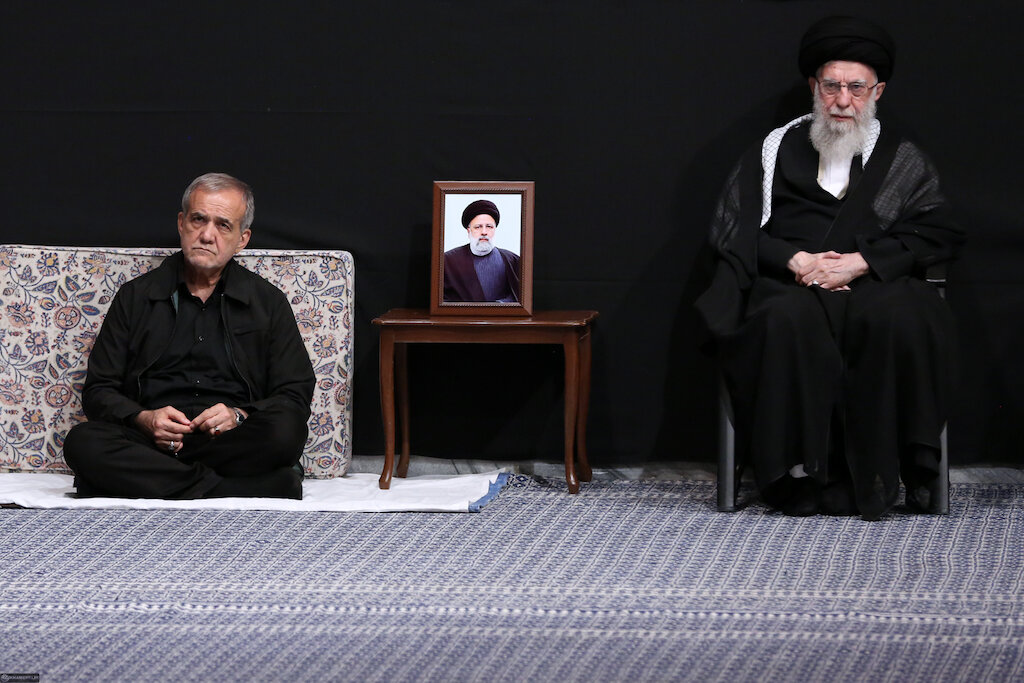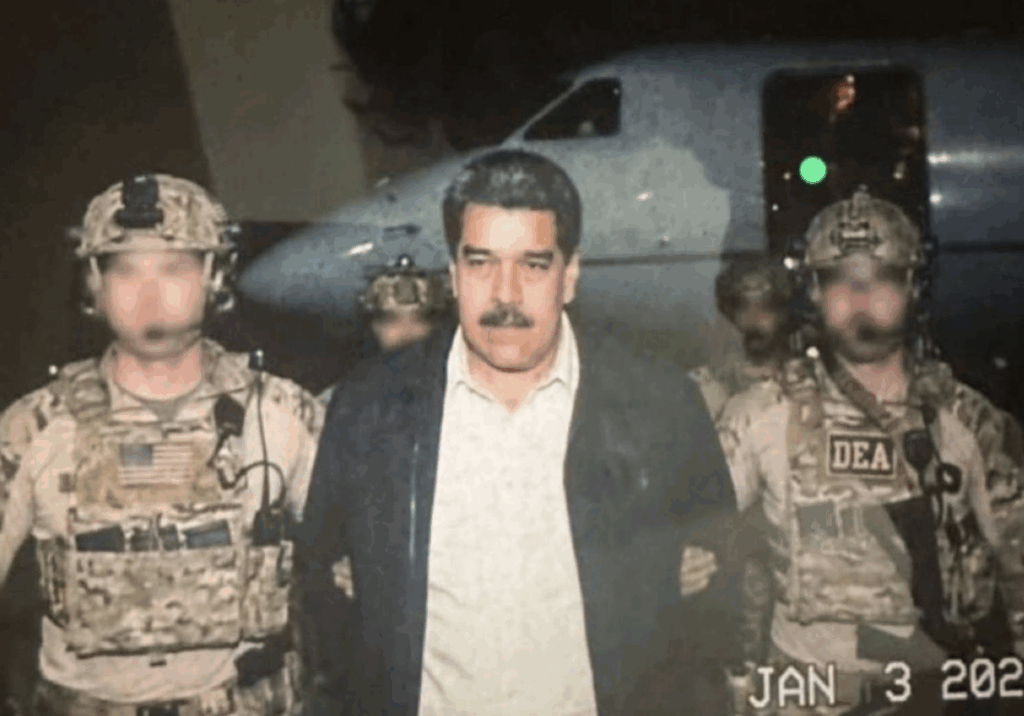Australia/Israel Review
Iran: Moving beyond diplomatic delusions
Apr 1, 2025 | Mehran Mossadegh

US President Donald Trump’s two-month ultimatum to reach a nuclear deal with Iran is being watched closely across the Middle East and beyond. Rather than triggering serious negotiations, this deadline exposed the enduring flaw in the West’s approach to the Islamic Republic – the persistent fantasy that Iran can be a genuine negotiating partner. Trump reinforced this stance in a letter to Iran’s Supreme Leader, warning that time is running out and signalling that the US will not tolerate further stalling.
Since the 1979 revolution, Teheran’s theocratic regime has demonstrated time and again that what the West views as negotiations, Iran treats as tactical delay and calibrated deception. This is not a regime that seeks compromise; it views diplomacy as a battlefield, another front on which to wage its revolutionary campaign.
As Israeli Prime Minister Binyamin Netanyahu has often argued, reasoning with Iran’s regime is futile. Expecting Iran’s leadership to negotiate in good faith is as unrealistic as “asking a fish to climb a tree”.
Tactical stalling, not genuine diplomacy
Iran’s response to Trump’s deadline has been predictable – blaming the US for escalating tensions while signalling, through more moderate voices, a willingness to talk. But this is not diplomacy – it is stalling.
Iranian President Masoud Pezeshkian might voice a readiness to negotiate – albeit only if the US treats Iran as fully “equal” – but it is Supreme Leader Ali Khamenei who makes the decisions. His goal is clear: delay negotiations until the October 2025 deadline set by a UN Security Council resolution passes, after which the “snapback” of all UN sanctions on Iran is no longer possible.
Iran has routinely deployed such tactics to avoid consequences while advancing its nuclear program. The Wall Street Journal recently made a similar observation in an editorial, warning that Teheran is playing a “good cop, bad cop” game to stall Trump until the October deadline passes and the snapback sanctions are off the table.
Time as a weapon – Clock is ticking
For Iran, time itself is a strategic weapon. Each diplomatic round buys Teheran space to further its nuclear ambitions. Veteran nuclear expert David Albright warned that Iran is already converting its 20% enriched uranium stockpile to 60%, a short step away from weapons-grade material.
Trump’s deadline reflects a rare understanding in Washington that endless diplomatic manoeuvring benefits only Iran. As Trump might say, Iran “doesn’t have the cards” and is in no position to dictate preconditions – unless the world lets it by blindly insisting on pursuing negotiations at all costs.
Holding Iran accountable for its proxies
A significant policy shift under Trump has been the decision to explicitly (though, for now, just rhetorically) hold Iran directly responsible for its proxies – such as the recent attacks by the Houthis on shipping. For decades, Iran fuelled conflicts through Hezbollah, Hamas and the Houthis while denying direct involvement, and the world largely allowed this.
October 7 was a turning point. Hamas’ brutal attack on Israel, on which it consulted and planned with Iran, shattered the illusion that these groups operate fully independently (and documents from Gaza now prove that Iran helped plan October 7, even if the regime did not know the exact date it would be launched). Washington now understands that Teheran is the architect of this regional chaos.
As US policy evolves, Israel has relentlessly degraded Iran’s regional assets. Israeli strikes have left Hamas in ruins, Hezbollah weakened and Syria’s Assad regime something that will only be written about in history books.
Recent reporting confirms that Israeli operations even destroyed Iran’s most advanced air defences, once thought to shield its nuclear facilities. Simultaneously, Iran’s economy is collapsing: inflation is surging, the currency is in freefall, there are terrible water and electricity shortages in many parts of Iran, and sanctions continue to bite.
Adding to Teheran’s woes, Saudi Arabia’s potential US$1 trillion investment and the UAE’s US$1.4 trillion plans are reshaping the region, signalling a future beyond Iran’s influence.
Trump the deal maker – Not a negotiator
It is notable that Trump rarely speaks of “negotiating” with Iran. Instead, he talks about “making a deal” – an important distinction. Trump’s approach is transactional; the deal happens on his terms or not at all. Given Iran’s current weakness, Trump likely believes he can impose terms – not find a “middle ground”.
Iran, however, continues to play for time. History shows Teheran will likely escalate just enough to stoke Western fears of wider conflict, thus forcing policymakers into concessions or new talks on Iran’s terms. Simultaneously, Teheran will hope to outlast this US administration, betting that a change in leadership could bring a more favourable policy environment.
A narrowing range of options
Yet, as the two-month deadline approaches, the West faces some stark choices. Iran’s tactics – escalation, delay and nuclear advancement – have left policymakers cornered.
The failure to recognise that negotiation was never a viable tool to stop Iran’s nuclear plans has cost and continues to cost the West precious time. By clinging to the fantasy of diplomacy, alternative strategies were neglected. Now, with Iran edging ever closer to nuclear capability, available responses are shrinking.
Targeted military strikes, covert operations, cyber-attacks like the Stuxnet virus (which damaged Iran’s uranium enrichment capabilities in 2010), or eliminating key IRGC leaders may soon be the only options left to halt Teheran’s ambitions. This is not merely about nuclear weapons; it is also about Iran’s support for proxies, its expanding missile program and its persistent threats and violence against Israel.
This raises a final strategic question: Who should lead the next phase – Trump or Netanyahu?
Trump may see himself as the ultimate dealmaker. However, it is Israel’s actions that have truly weakened Iran over the past year-and-a-half. Israel, driven by existential necessity, has led a campaign to which the US is only now catching up.
The wiser path for Trump might be to recognise this dynamic. A successful outcome – forcing Iran to abandon its nuclear ambitions and curbing its regional aggression – might come not from deal-making bravado but from allowing Israel to remain at the forefront, while offering substantive US support for Israel’s efforts.
Ending the mirage of negotiation
For too long, the West has operated under the illusion that Iran’s regime is capable of entering genuine negotiation aimed at finding common ground and arrangements that allow both parties to meet their core interests. Decades of evidence and Teheran’s current behaviour make it clear that the Iranian regime does not see negotiation in these terms – dialogue is merely a tactic, never a path to resolution.
Trump’s short deadline is a necessary wake-up call, but it is unlikely to yield the desired result by itself. The West is rapidly running out of non-military options to prevent a nuclear-armed Iran – something all recent US administrations and most US allies have promised to prevent, for very good reasons. A decisive response – including economic warfare, cyber operations, and, if necessary, targeted military action – may soon be unavoidable.
The months ahead will reveal who truly understands the stakes – and who is best placed to act on that understanding. Whether it is Trump or Netanyahu leading the next phase, this year might see the last, best opportunity to shatter the negotiation delusion and finally confront Iran’s regime using the only means that have any genuine chance of success. First and foremost, this requires recognising the realities regarding the deadlines, deterrence and deception that have defined this long-running crisis.
Mehran Mossadegh is the founder of NegotiationWise, a Melbourne-based consultancy specialising in negotiation, decision-making and strategy, and is the author of numerous articles reviewing the various rounds of nuclear negotiations with Iran.
Tags: Donald Trump, Iran, Middle East, United States, nuclear






